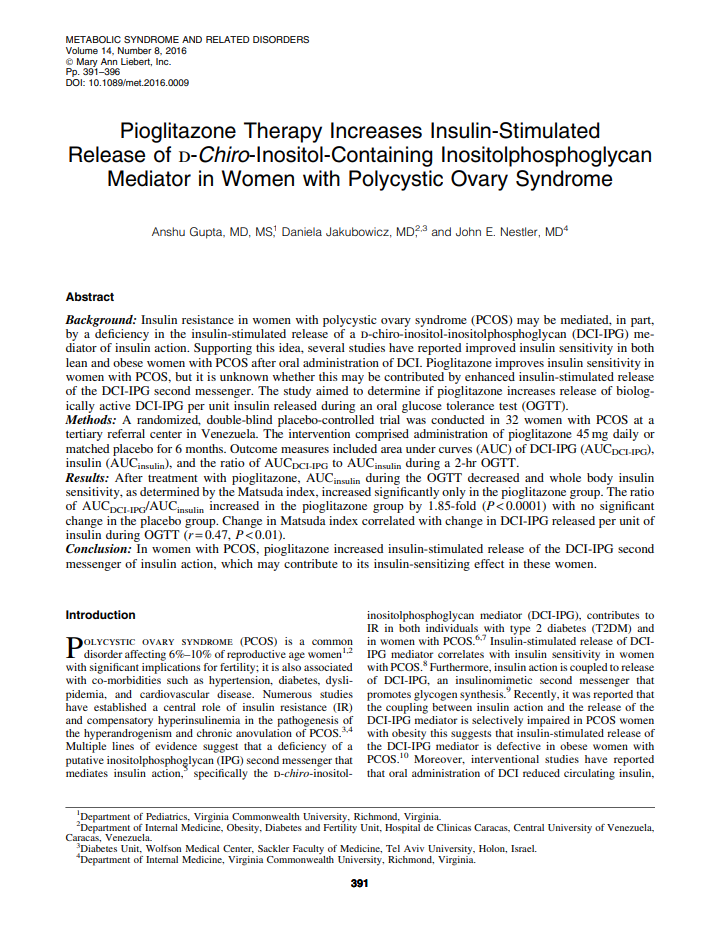Abstract
Background: Insulin resistance in women with polycystic ovary syndrome (PCOS) may be mediated, in part, by a deficiency in the insulin-stimulated release of a d-chiro-inositol-inositolphosphoglycan (DCI-IPG) mediator of insulin action. Supporting this idea, several studies have reported improved insulin sensitivity in both lean and obese women with PCOS after oral administration of DCI. Pioglitazone improves insulin sensitivity in women with PCOS, but it is unknown whether this may be contributed by enhanced insulin-stimulated release of the DCI-IPG second messenger. The study aimed to determine if pioglitazone increases release of biologically active DCI-IPG per unit insulin released during an oral glucose tolerance test (OGTT).
Methods: A randomized, double-blind placebo-controlled trial was conducted in 32 women with PCOS at a tertiary referral center in Venezuela. The intervention comprised administration of pioglitazone 45 mg daily or matched placebo for 6 months. Outcome measures included area under curves (AUC) of DCI-IPG (AUCDCI-IPG), insulin (AUCinsulin), and the ratio of AUCDCI-IPG to AUCinsulin during a 2-hr OGTT.
Results: After treatment with pioglitazone, AUCinsulin during the OGTT decreased and whole body insulin sensitivity, as determined by the Matsuda index, increased significantly only in the pioglitazone group. The ratio of AUCDCI-IPG/AUCinsulin increased in the pioglitazone group by 1.85-fold with no significant change in the placebo group. Change in Matsuda index correlated with change in DCI-IPG released per unit of insulin during OGTT.
Conclusion: In women with PCOS, pioglitazone increased insulin-stimulated release of the DCI-IPG second messenger of insulin action, which may contribute to its insulin-sensitizing effect in these women.

